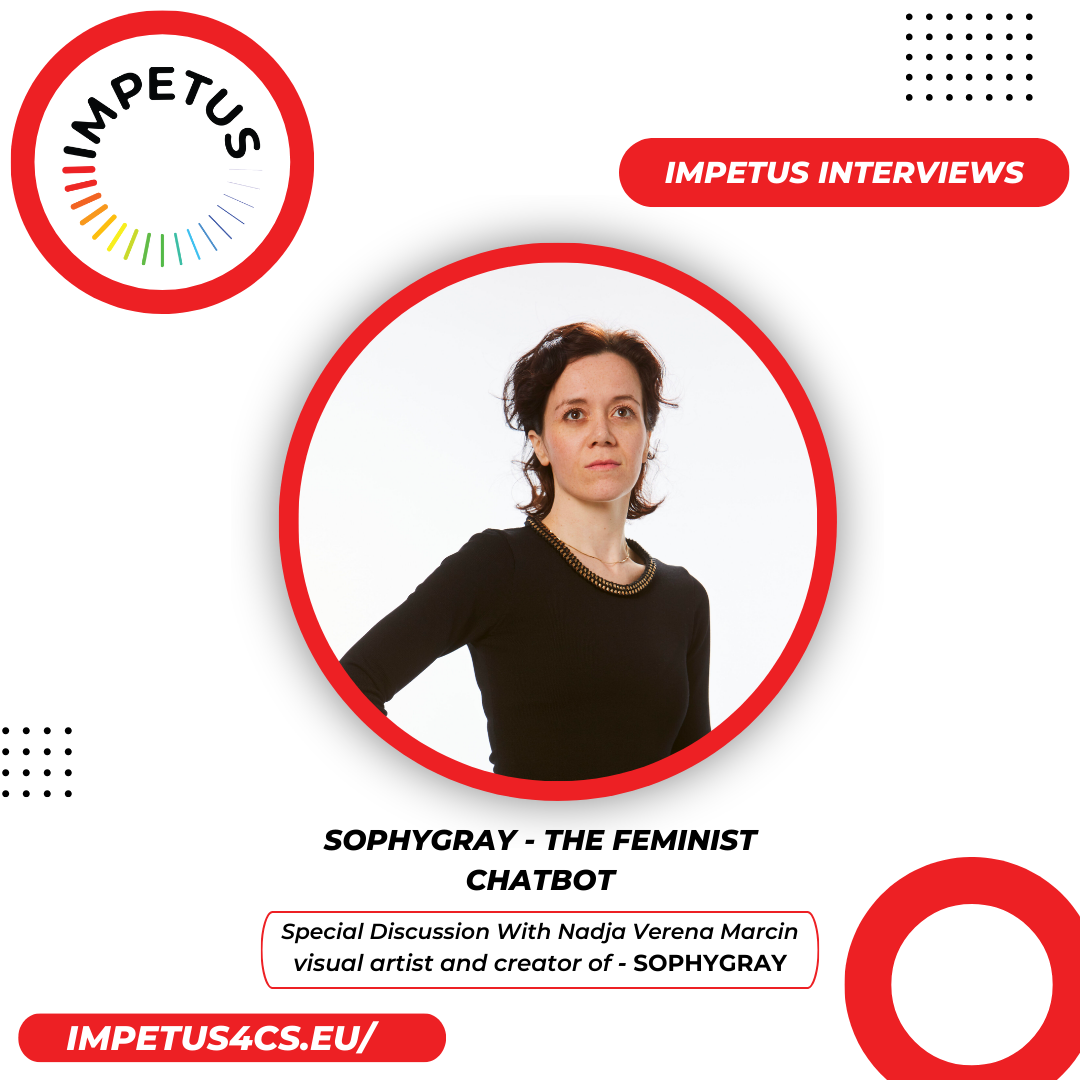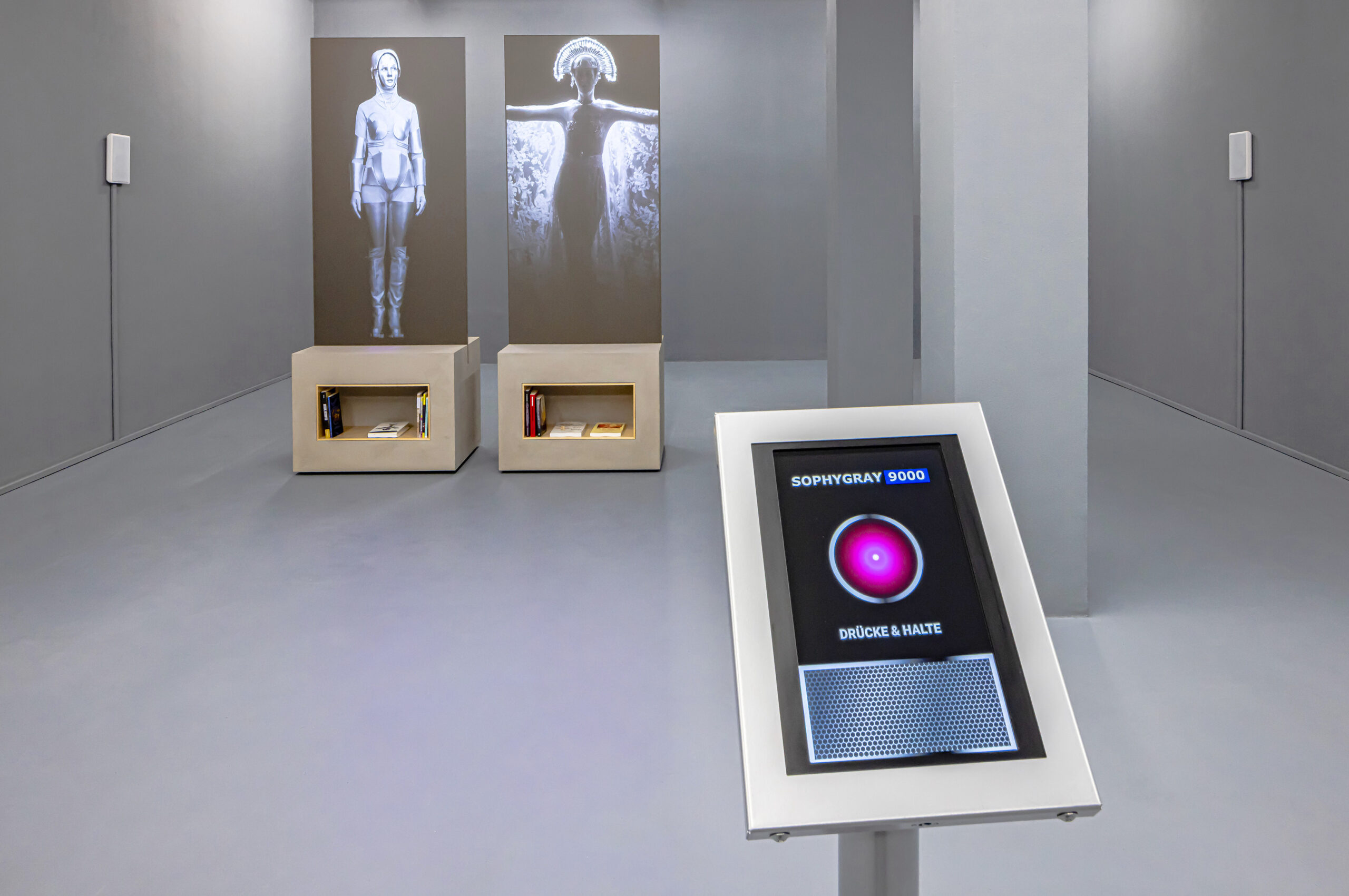In this new digital age we find ourselves in, virtual assistants like Siri, Alexa, and Cortana have become integral to our daily lives, aiming to simplify everyday tasks. However, a commonality among them is the adoption of a female “persona.” Upon contemplation, this choice has raised concerns, as it appears to transfer traditionally unnoticed or undervalued responsibilities, typically associated with women, to these digital entities, thereby perpetuating gender stereotypes.

To examine this issue through a feminist lens, the visual artist Nadja Verena Marcin created #SOPHYGRAY – The feminist chatbot, a recipient of an Honourable Mention at the 2023 EU Prize for Citizen Science.
When you speak to #SOPHYGRAY, she talks back, sharing her thoughts, opinions, and favourite feminist philosophies, to help create counter-narratives around our gender biases in technologies, and the stereotypes enforced by common language use, in a humorous and unique way.
#SOPHYGRAY was developed and co-created with a team of artists, researchers, programmers, and big thinkers and provided a plethora of feminist literature. From this, the SOPHYGRAY app was produced, which you can download here.
But #SOPHYGRAY is more than an app, she is an art piece and an experience.
If you are lucky enough to see SOPHY “in person”, you will see the experience come to life, through interpretive dance, with SOPHY being depicted as characters from the movie Metropolisis, widely considered as the first mainstream depiction of a female robot.

In this IMPETUS interview, we discuss with Nadja the creation of #SOPHYGRAY, how SOPHY is continuing to develop and learn, and how she could help us rethink the way we see the world of technology, AI, and feminism.


